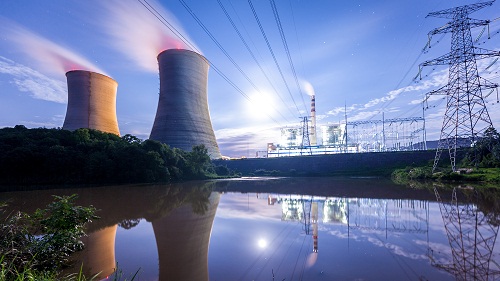Nuclear Engineering
✪ Nuclear engineering is the study of nuclear elements such as atoms, protons and neutrons. It is a specialization in engineering that focuses on fusion and fission of nuclei. Nuclear engineering also involves the study of radiation, especially nuclear safety, ionizing radiation, heat and thermodynamics, nuclear fuel and the problems that arise from nuclear proliferation. This field is responsible for the release, control and utilization of nuclear energy and the production and use of radiation and radioactive materials.
✪ It is an engineering discipline that studies radioactive materials and radiation for use in a variety of fields, such as Power, Medicine and Manufacturing. This engineering field is based on fundamental principles of physics and mathematics that define nuclear interactions and the transport of neutrons and gamma rays. Nuclear engineering is a combination of Chemical and Electrical engineering subjects. Candidates who complete this course are called Nuclear engineers. One who specializes in Nuclear engineering involves in making the design, construction and operation of nuclear reactors. They describe how radiation and radioactive materials can be used for industrial, medical and scientific purposes. These engineers design and create the processes, equipment and systems, instrumentation that contain nuclear materials used in multiple industries and companies. A Nuclear engineer's work is to solve general problems related to nuclear energy. Most of the time they spend working for long hours compared to working in public sectors.

Types of Courses:
✦ B.Tech
✦ M.Tech
✦ Ph.D
Eligibility:
BE/ B.Tech:
✦ Candidates must have passed 10+2 with 50% marks with science stream of Physics, Chemistry and Maths.
✦ Candidates need to qualify the entrance exams like JEE Main, JEE Advanced, EAMCET, SRMJEE, COMEDK, BITSAT. Admissions are based on merit shown in entrance exams.
✦ Course duration is for 4 years.
ME/ M.Tech:
✦ Candidates must have passed BE/ B.Tech in nuclear engineering.
✦ Candidates with the degree in B.Sc Physics, Chemistry, Mathematics can also eligible for this course.
✦ Candidate should get a minimum of 55% marks in previous qualifying exams.
✦ Most of the colleges provide admissions through merit. While some universities/ colleges consider GATE score also.
✦ Course duration is for 2 years.
Ph.D:
✦ To pursue this course, students must have passed M.Tech Nuclear engineering with 60% of aggregate marks.
✦ A valid entrance test (GATE, UGC NET) with 50% score is needed.
✦ Students need to qualify Interview which is followed by entrance exam.
✦ Course duration is 3- 5 years.
Skills Required:
Analytical and good aptitude are important skills for Nuclear Engineers. They should be creative and think multi- dimensionally. This field deals with a lot of complicated systems so candidates must have logical thinking and must be able to give a reason for an effect as well. One who practices this course must have sufficient knowledge of maths as this involves complex calculations. Engineers must possess good communication skills and can able to work in a team as they usually work with many people. Sometimes they work under pressure so patience plays a key role for engineers.
Institutes:
Career options:
After completion of B.Tech or M.Tech Nuclear Engineering, students can either choose for higher education or opt for various job opportunities. The career opportunities are expanding rapidly in this field. Nuclear engineers are basically hired in Power Plants, Nuclear energy companies, Chemical Industry, Colleges and Universities, Science and Technology Companies.
Some of the Job Roles for Nuclear engineers are:
✯ Nuclear engineer
✯ Chemical engineer
✯ Scientific engineer associate
✯ Material engineer
✯ Lecturers/ Professor
✯ Physical scientist
✯ Project engineer
✯ Trainee engineer
✯ Nuclear/ Mechanical/ Structural engineer
Renumeration/ Salaries:
✯ Nuclear engineering is one of the highly paid jobs. The increase in earnings depends on their experience as well as qualification. The Payscale for Nuclear engineers abroad is very high due to the demand for nuclear energy jobs. The average annual salary for freshers ranges from INR. 4 to 12 LPA (approx.). However, public sector salaries are lower compared to the private sector. But other benefits such as travel allowances, accommodation, medical allowances are provided.
Top Recruiters:
✯ ISRO
✯ BWXT
✯ DRDO
✯ Bhaba Atomic Research Centre
✯ Nuclear Power Corporation of India Limited
✯ Indira Gandhi Centre for Atomic Research
✯ Atomic Minerals Directorate for Exploration and Research and more.
Top Recruiting Areas:
❏ National Laboratories
❏ Colleges and Universities
❏ Power Plants
❏ Nuclear Energy Companies
❏ Research Laboratories
❏ Science and Technology Companies and etc,.
Posted Date: 27/06/2025